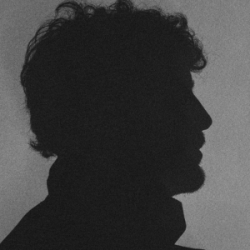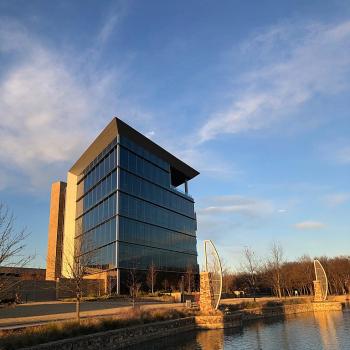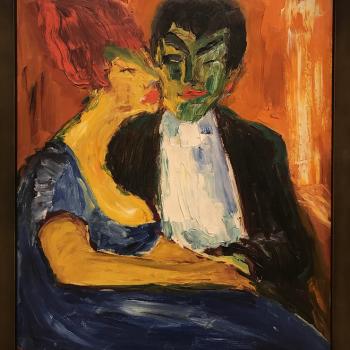But these more recent conversations likewise came as a component of relationship between human beings—not between labels or stereotypes, and certainly, thankfully, not between enemy and enemy.
To all those who say they hate Islam, I repeat my question of a couple of weeks ago: Do you know any Muslims?
To all those that say that Islam is a religion of aggression and terror—an erroneous accusation repeated by Christians since the Middle Ages—I repeat my question: Have you read the Quran and tried to understand it in its original context?
To all those who worry that Islam is going to take over America, I repeat this question: Have you related to any Muslims enough to have any idea what they want?
I didn't join Muslims for Ramadan dinner because I expected that I would become one; I am still a devoted and faithful Christian, although I expect to be in ongoing relationship with some of the Muslims I have met recently, and I look forward to learning more about Islam from practitioners and not just from books.
I didn't have dinner with Muslims because I expected that once they heard about how my faith had transformed my life, they would become Christians (preferably Episcopalians, preferably members of my own St. David's, Austin, congregation), although I expect to show my new friends how love and compassion are at the center of my faith.
But by having dinner with people who differ from me in important ways, and who are often vilified in American culture, I was able to stand in solidarity with them and against unreasoning hate—which is one of the things I believe Christians are called to do.
By taking the time to have conversation, by accepting generous offers of hospitality, and by putting myself, shy person that I am, outside of my usual comfort zone, I was able to put aside some of my preconceptions and misconceptions about Islam through the very simple act of meeting human beings who practice Islam.
And this is, I think, the way forward for us after 9/11. If that event offered one horrifying negative—the fact that many Americans now live their lives with fear as their organizing principle—it also gave us this wondrous possibility. After 9/11, for people of good conscience, interfaith conversation became even more important.
Just as we seek to be understood, we need to seek to understand others.
Just as we seek the right to practice our faith freely, we need to allow others to seek the same thing.
Just as we seek, following in the footsteps of Jesus, to love those who have been marginalized by their society, we need to seek to love American Muslims who through no fault of their own have come become our Great Satan.
I finished Ramadan convinced that people of good faith on both sides of the Muslim/Christian divide could meet as friends and not enemies, and I can report that this is also the desire of the Muslims I met this Ramadan. In this next decade, Insh'Allah—God willing—let us all move forward in love instead of hate, in hope instead of fear.
That would be the truly Christian response to 9/11.





